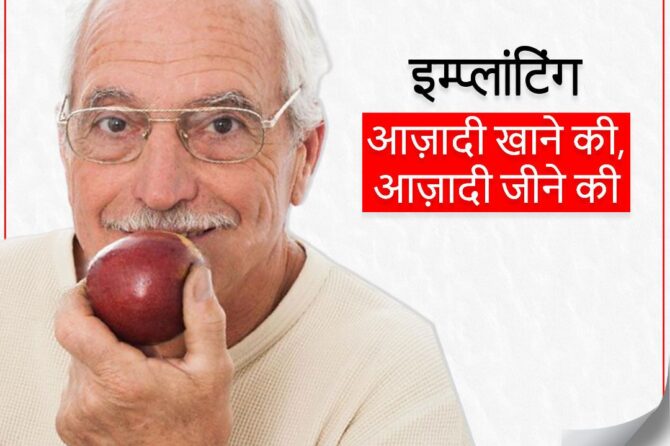
Geriatric Dentistry | Diabetes, Hypertension, Kidney disorders
Geriatric Dentistry: Geriatric refers to medical care for older adults. Oral health which forms a major fraction of general health as its impact on physical and mental status thus affecting the quality of life of geriatric population. Hence it is necessary to focus on the knowledge and education in the field of geriatric dentistrty.
Geriatric dentistry is the delivery of dental care to older adults involving diagnosis, prevention, management and treatment of problems associated with age.
Tooth loss, dental caries, rise in periodontal diseases, xerostomia, altered taste sensation and potentially malignant disorders are seen most frequently in older people with poor oral hygiene. In older people poor oral health is one of the risk factors for general health problems. Oral health problems increase due to decreased immunity with old age and co existing medical conditions like diabetes, hypertension, kidney problem. In addition long term use of medications leads to xerostomia and the absence of protective functions of saliva increases the chances of oral diseases.
Diabetes is one of the most common diseases affecting older people. The most common oral health problems associated with diabetes are periodontal disease, salivary gland dysfunction, fungal infections, oral burning and altered taste, oral mucosal diseases including lichen planus, dental caries .prior to dental treatment of diabetic patients dentist must obtain a good medical history which indicate the type of diabetes. Antibiotic medication ,their dosage and times of administration should be noted.
Scheduling of visits also play a major role. Appointments should be scheduled so that they do not coincide with peaks of insulin activity as it is the period of maximal risk of developing hypoglycaemia. Dentist must also ensure that patients have eaten normally and taken medicines as usual. Depending on patients medical history dentist may need to measure blood glucose level before beginning of procedure with the help of electronic blood glucose monitors. When invasive dental procedures are to be performed like tooth extractions, biopsies antibiotic prophylaxis is a must.
More about Geriatric Dentistry from Dr Chirag Chamria
In general morning appointments are advisable in diabetic patients since endogenous cortisol levels are typically higher at this time. As cortisol increases blood sugar level the risk of hypoglycaemia is less. Hypertension is also very common medical condition in elders. A detailed case history is essential in treating hypertensive patients in dental office. Patient vitals should be monitored before starting any dental procedure for a hypertensive patient. White coat hypertension should be differentiated from presence of systemic blood pressure disease.
Dentist must also ensure that patient has eaten food and taken their medication as usual before the dental procedure. In hypertensive patients usually plain local anaesthesia without adrenalin is administered. Elevated blood pressure can lead to excessive intra operative bleeding during surgical procedure. Haemostatic agents such as fibrin sealants, oxidized cellouse, ferrous sulphate can be used in such cases.
Kidney disorders are also very commonly found in geriatric patients. Dentist need to take a full detailed case history in such patients and may also consult the nephrologist if required for consent to carry out the dental procedure. Recording of blood pressure is very important in such cases. Dental treatment should be carried out in patients on the day not receiving dialysis to be sure that there is no heparin in the blood. In severe renal diseases bones are more susceptible to fractures. Hence dental extraction procedures should be carried out carefully to avoid fractures.
Leave a reply

Leave a reply